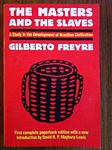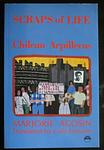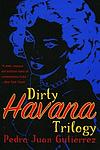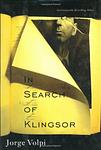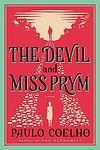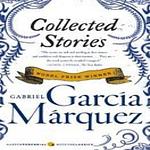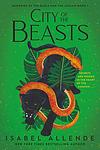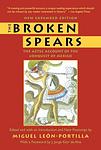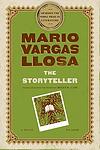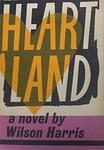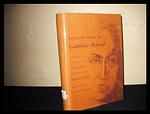Genres
Date Range
Reading Statistics
Click the button below to see how many of these books you've read!
Download
If you're interested in downloading this list as a CSV file for use in a spreadsheet application, you can easily do so by clicking the button below. Please note that to ensure a manageable file size and faster download, the CSV will include details for only the first 500 books.
Download-
101. The Masters and the Slaves by Gilberto Freyre
This book is a sociological and anthropological study of 19th century Brazil, focusing on the relationship between the Portuguese colonists and the African slaves. It delves into the racial and cultural synthesis that occurred, resulting in the unique Brazilian identity. The book is known for its controversial assertion that the Portuguese colonizers were more humane and less racist than their North American counterparts, leading to a more harmonious racial integration in Brazil.
-
102. Santa Evita by Tomás Eloy Martínez
"Santa Evita" is a fictionalized account of the life and death of Eva Peron, the beloved First Lady of Argentina. The book delves into the mysterious journey of her embalmed corpse which was moved around the world and hidden for 16 years after her death. The narrative, interwoven with historical facts, explores the cult-like fascination and devotion that surrounded her during her life and continues after her death.
-
103. Scraps Of Life by Marjorie Agosín
"Scraps of Life" is a poignant collection of testimonies and reflections on the harrowing experiences of Chilean women who endured the brutality of the Pinochet dictatorship. Through a tapestry of personal narratives, poems, and letters, the book gives voice to the pain, resilience, and unyielding hope of these women as they navigate the aftermath of political repression and personal loss. The work serves as a powerful testament to the strength of the human spirit and the enduring quest for justice and memory in the face of unspeakable atrocities.
-
104. Dona Flor And Her Two Husbands by Harriet de Onís, Jorge Amado
In this vibrant and humorous novel, we follow the life of a young Brazilian widow, Dona Flor, who is renowned for her irresistible culinary talents and her dedication to her students at the cooking school she runs. After the untimely death of her wild, irresponsible, but passionately loved first husband, she eventually remarries a man who is the polar opposite: kind, considerate, and utterly devoted, yet lacking the fiery passion of her first spouse. Her life takes an unexpected turn when her first husband's ghost returns, leading to a peculiar and comedic arrangement where she finds herself juggling the affections and demands of both her deceased and living husbands, challenging her notions of love, marriage, and fidelity in a tale that celebrates the complexity of human relationships and the cultural tapestry of Brazilian society.
-
105. 100 Years Of Solitude by Gabriel García Márquez
The novel chronicles the rise and fall of the Buendía family over seven generations in the mythical town of Macondo, founded by the family's patriarch, José Arcadio Buendía. The story delves into the lives of the Buendía family, whose members experience love, lust, obsession, and despair, intertwined with magical and surreal events. The family's history mirrors and critiques the social and political evolution of Latin America, exploring themes of solitude, destiny, and the inevitability of history repeating itself. The novel's rich, imaginative narrative has made it a cornerstone of magical realism, profoundly influencing the literary world.
-
106. Dirty Havana Trilogy by Pedro Juan Gutierrez
This book is a raw and gritty portrayal of life in Havana, Cuba during the economic collapse of the 1990s. The story is narrated by a former journalist turned hustler who lives in the city's slums. The protagonist survives through a series of odd jobs and illegal activities, as he navigates through a world of poverty, violence, and corruption. The narrative is filled with graphic depictions of sex, drugs, and the struggle to survive, providing a stark contrast to the romanticized image of Havana.
-
107. The Impenetrable Madam X by Griselda Gambaro
"The Impenetrable Madam X" is a provocative play that delves into the complexities of human relationships and societal expectations. Set against a backdrop of surrealism and absurdity, the narrative follows the titular character, a woman shrouded in mystery and power, who interacts with various other characters in a series of disjointed scenes. Through sharp dialogue and symbolic interactions, the play explores themes of identity, power dynamics, and the struggle for understanding within the confines of a world that oscillates between the real and the fantastical. The work challenges audiences to question the nature of reality and the masks people wear in their daily lives.
-
108. In Search of Klingsor by Jorge Volpi Escalante
"In Search of Klingsor" is a historical novel that revolves around the pursuit of a mysterious Nazi scientist named Klingsor. The story is set during World War II and the Cold War, and follows two main characters, an American physicist and a Mexican mathematician, who are tasked with finding and identifying Klingsor. The novel uses real historical figures and events to explore themes of science, war, and morality, while also delving into the complex nature of truth and deception.
-
109. The Devil and Miss Prym by Paulo Coelho
A stranger arrives in the small town of Viscos, carrying with him a choice that could bless or curse the entire community. The town's inhabitants are forced to confront their deepest fears and question their moral compasses as they wrestle with the stranger's proposition: he will give them a fortune in gold if they kill one of their own. The stranger's presence stirs up chaos and brings to light the darkness within the human soul, challenging the townsfolk to make a decision that will determine their future.
-
110. Collected Stories by Gabriel García Márquez
"Collected Stories" brings together a diverse array of tales that blend the magical with the mundane in a uniquely evocative manner. The stories traverse a variety of settings and characters, each infused with the author's rich imagination and lyrical prose. Themes of love, violence, and destiny are explored through narratives that often blur the lines between reality and fantasy, capturing the complexities of human experience and emotion. This collection showcases the author's ability to illuminate the extraordinary within the ordinary, making the familiar seem fantastical and the fantastical accessible.
-
111. A Bag Of Stories by Edla Van Steen
"A Bag of Stories" is a collection of short stories that delve into the complexities of human relationships and emotions, exploring themes such as love, loss, and the intricacies of family dynamics. The narrative weaves through the lives of various characters, each story offering a glimpse into their personal struggles and triumphs, often revealing the unexpected ways in which people's lives intersect. With a blend of poignancy and humor, the book captures the essence of everyday experiences, highlighting the profound impact of seemingly ordinary moments and the enduring strength of the human spirit.
-
112. Family Album by Claribel Alegría
"Family Album" is a poignant collection of poetry that delves into the intimate and complex tapestry of family life, heritage, and personal history. The poet weaves a narrative that explores themes of memory, loss, love, and the passage of time, often reflecting on the political turmoil of her Central American roots. Through vivid imagery and emotional depth, the poems capture the essence of human relationships and the indelible marks they leave on our identities, creating a universal album that resonates with the shared experiences of readers from all walks of life.
-
113. Prisoner Without A Name, Cell Without A Number by Jacobo Timerman
The book is a harrowing memoir of a journalist who was detained and tortured by the Argentine military government during the late 1970s. It vividly recounts his experiences of imprisonment, the brutal interrogation techniques he endured, and his observations on the political and social turmoil of Argentina under a repressive regime. The narrative not only exposes the personal anguish and struggle of the author but also serves as a critical examination of the impact of totalitarianism on society and the perilous state of human rights under such governance.
-
114. City of the Beasts by Isabel Allende
A 15-year-old boy is forced to move in with his eccentric grandmother after his mother falls ill. Together, they embark on a journey to the Amazon rainforest in search of a legendary, healing beast. Along the way, they encounter various challenges, including dangerous animals, harsh environments, and a group of indigenous people with mystical powers. The boy learns to overcome his fears and prejudices, forming a strong bond with the indigenous people and the rainforest itself.
-
115. News Of A Kidnapping by Gabriel García Márquez
The book chronicles the harrowing real-life experiences of several journalists who were kidnapped in Colombia in the early 1990s by the Medellín drug cartel, led by Pablo Escobar. The narrative delves into the psychological and emotional turmoil faced by the hostages and their families, while also exploring the complex political and social landscape of Colombia during this tumultuous period. Through meticulous reporting and personal testimonies, the book sheds light on the pervasive influence of drug cartels on Colombian society and the extreme measures taken by Escobar to leverage his power against the government's extradition policies.
-
116. The Broken Spears by Miguel Leon-Portilla
"The Broken Spears" presents a poignant account of the Spanish conquest of the Aztec Empire from the perspective of the indigenous people. Through a compilation of Nahuatl texts, the book offers a narrative that contrasts sharply with the traditional European-centered histories. It highlights the devastating effects of Spanish conquest on the Aztec civilization, including the significant cultural and human losses suffered due to violence and disease. The work provides a voice to the Aztec people, showcasing their courage, complexities of their society, and the tragic impact of colonialism.
-
117. Pedagogy Of The Oppressed by Paulo Freire
This book is a seminal work in the field of critical pedagogy that explores the complex relationship between the oppressor and the oppressed in educational contexts. The author argues that traditional pedagogical methods perpetuate existing hierarchies and suggests a new approach called "problem-posing education," which emphasizes dialogue and critical thinking to empower learners to question and challenge oppressive systems. The text is both a critique of the way education is often used as a tool of domination and a guide for how it can instead be transformed into a practice of freedom, helping individuals to achieve self-realization and societal change.
-
118. The Sound Of Things Falling by Juan Gabriel Vásquez
"The Sound Of Things Falling" is a thought-provoking novel that delves into the complex and haunting aftermath of the drug trade in Colombia. Set against the backdrop of a turbulent country, the story follows the lives of two men whose paths intertwine in unexpected ways. Through vivid storytelling and poignant reflections, the book explores themes of memory, guilt, and the lasting impact of violence on individuals and society.
-
119. My Life And The Beautiful Game by Pele
The book is an autobiography by one of the greatest soccer players of all time, who shares his journey from the streets of Brazil to becoming a global sports icon. The narrative delves into his profound love for soccer, detailing his career highlights, personal life, and the challenges he faced along the way. It also explores his role in popularizing soccer across continents and his enduring impact on the sport, providing insights into his philosophy both on and off the pitch. The autobiography is not only a reflection on his illustrious career but also an inspirational story of dedication, passion, and the transformative power of sports.
-
120. The Storyteller by Mario Vargas Llosa
"The Storyteller" is a novel that explores the tension between modern civilization and indigenous culture. The narrative alternates between two perspectives: one of a successful documentary filmmaker in Italy who is haunted by his past in Peru, and the other of an indigenous storyteller from an Amazonian tribe. The filmmaker recalls his college friend, who was fascinated by the indigenous cultures of Peru and disappeared into the Amazon rainforest. As the story unfolds, it becomes increasingly apparent that the indigenous storyteller and the filmmaker's lost friend are one and the same. This revelation leads to a profound examination of the effects of cultural assimilation, the value of tradition, and the power of storytelling.
-
121. Heartland by Wilson Harris
"Heartland" is a novel that delves into the complexities of human consciousness and the interplay between reality and imagination. Set against a backdrop that blends elements of South American landscapes with mythological dimensions, the narrative follows a protagonist who embarks on a transformative journey. Throughout this journey, the character encounters various figures and experiences that challenge his perceptions of identity, time, and existence. The book is known for its dense, poetic prose and its exploration of themes such as colonialism, cultural heritage, and the nature of artistic creation, all of which contribute to its reputation as a challenging but rewarding read.
-
122. We All Love Glenda So Much And Other Tales by Julio Cortazar
This collection of short stories delves into the surreal and the everyday with equal finesse, exploring the boundaries of reality and the quirks of human relationships. The narratives range from the titular tale, which examines the obsessive adoration of a famous actress, to more abstract and fantastical explorations of human experience. The author's masterful prose and innovative storytelling techniques invite readers to question the nature of truth and fiction, often blurring the lines between the two, while presenting a series of vignettes that are both thought-provoking and emotionally resonant.
-
123. Apu Ollontay by Peru
"Apu Ollontay" is a dramatic play that revolves around the story of an Inca general who falls in love with a princess named Cusi Coyllur. However, their love is forbidden due to their differing social statuses. The general, Ollontay, rebels against the emperor in order to be with her, leading to a civil war. The story explores themes of love, rebellion, and the consequences of defying societal norms and expectations.
-
124. Selected Poems of Gabriela Mistral by Gabriela Mistral
This book is a compilation of selected poems by a renowned Latin American poetess, who was the first Latin woman to win the Nobel Prize in Literature. The collection features a wide range of themes including love, sorrow, nature, and death. Her unique poetic style, often characterized by emotive language and vivid imagery, has made her a significant figure in the world of literature.
-
125. Letters To A Young Novelist by Mario Vargas Llosa
"Letters to a Young Novelist" is a collection of fictional letters addressed to an aspiring writer, wherein the seasoned author shares insights and reflections on the craft of writing. Through these letters, the author delves into the complexities of narrative techniques, character development, and the interplay between personal experience and fictional creation. The book serves as a mentorship from afar, offering both practical advice and philosophical musings on the art of storytelling, aiming to inspire and guide the next generation of writers in their creative endeavors.
Reading Statistics
Click the button below to see how many of these books you've read!
Download
If you're interested in downloading this list as a CSV file for use in a spreadsheet application, you can easily do so by clicking the button below. Please note that to ensure a manageable file size and faster download, the CSV will include details for only the first 500 books.
Download